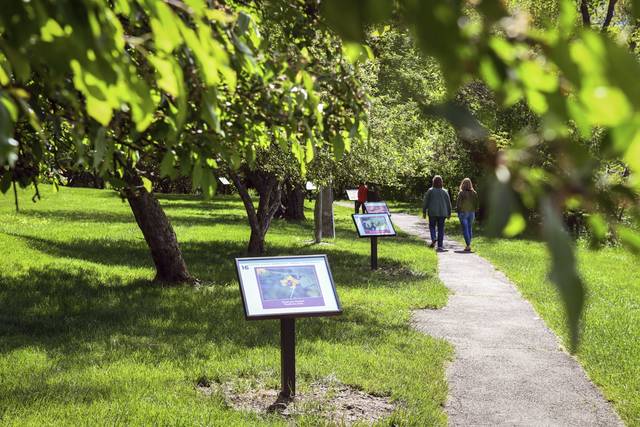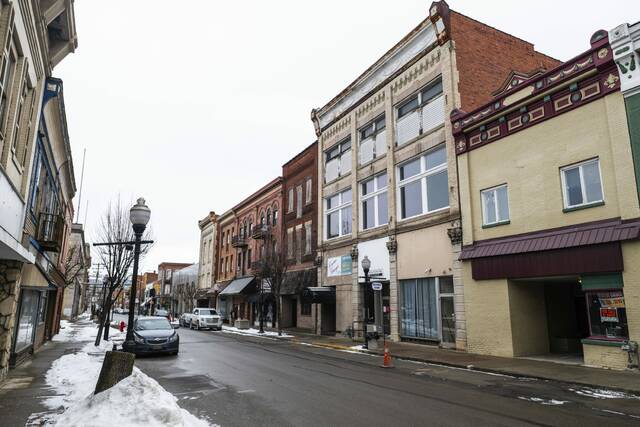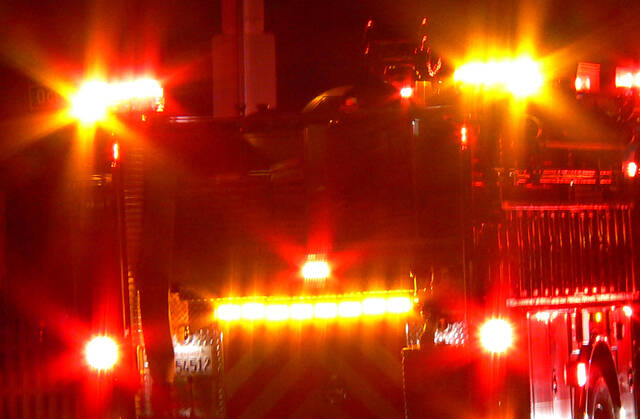As temperatures rise, allergy symptoms are ramping up for many seasonal sufferers — especially in the Pittsburgh region.
Pittsburgh ranks as the fifth most challenging place to live with seasonal allergies, according to a recent report from the Asthma and Allergy Foundation of America.
“This report validates what everyone who lives here thinks — that we are not a good place for allergies,” said Dr. Merritt Fajt, assistant professor of medicine in the division of pulmonary allergy and critical care at UPMC.
And the problem is likely worsening.
Recent years have revealed a trend of longer active pollen seasons and higher pollen counts, said Christine Rauscher, a board-certified allergist and immunologist at Allegheny Health Network.
“It’s going to get longer and longer, because that’s what the pattern has been for seasonal allergies,” Rauscher said. “Plants are producing more pollen and having longer active pollen seasons.”
Tree pollen is the main culprit for allergy symptoms in the region right now. The National Allergy Bureau reported high concentrations of tree pollen at its Monroeville site, and Fajt said tree pollen counts are predicted to remain high for the next several days.
Grass pollen will be cropping up soon, too, Rauscher said.
“Traditionally, grass is thought to be a summertime allergy, starting at the end of May, but it could come earlier,” she said.
Northern grasses — like timothy, which is identifiable by its cat’s tail — tend to aggravate allergies the most, she said.
Though allergy symptoms can be problematic any year, they are particularly concerning for some patients who confuse their symptoms with covid-19. Many symptoms seem to overlap, causing extra concern in the midst of the pandemic.
“Usually, patients who have had allergies before can kind of recognize their symptoms,” Rauscher said. “But if there’s any concern, I wouldn’t hesitate to reach out and get a second opinion.”
Though there are similar symptoms, Rauscher noted that the itching sensation common with allergies isn’t indicative of covid-19. Fajt said that allergies shouldn’t cause a fever or loss of smell or taste, though those symptoms are prevalent with covid-19. Allergies alone shouldn’t cause breathing problems either, she said.
People who are unsure if they’re dealing with allergies or covid-19 should consult a doctor, she said.
For those suffering with allergies, there are a number of simple options to ease symptoms, Fajt said. Keeping pollen out of the house is the first step.
“The first thing is keeping the windows closed,” she said. “I know people like to get that fresh air, especially with covid concerns, but leaving the windows open just brings all that pollen indoors, where it can just sit on your furniture and everything.”
Keep the windows closed while driving, too, she said.
Fajt suggested changing clothes and taking a shower after spending any long period of time outside to ensure people aren’t tracking pollen into their homes.
Wearing a face mask, something that has become ubiquitous during the covid-19 pandemic, may also help with allergies, Rauscher said.
“It helps prevent pollen from getting inhaled, and it can warm the air and make it feel easier to breathe,” she said, adding that glasses and hats are helpful for keeping pollen out of your eyes.
After symptoms do start to develop, Fajt recommends salt water rinses for the nose, nasal steroid sprays, antihistamines and eye drops as potential over-the-counter remedies.
If those steps don’t help, Fajt recommends seeing a doctor or an allergy specialist. Allergy specialists can help patients identify exactly what they are allergic to, making it easier for patients to avoid their allergens, she said.
People who know they suffer from seasonal allergies can be pro-active in managing symptoms, Fajt said. For allergy sufferers who know they struggle with tree pollen, it’s a good idea to start taking allergy medications now instead of waiting to feel “absolutely terrible,” she said.
“The pollen seasons just seem to be getting worse,” Fajt said. “And for whatever reason, Pittsburgh just seems to be in the crossfire.”








